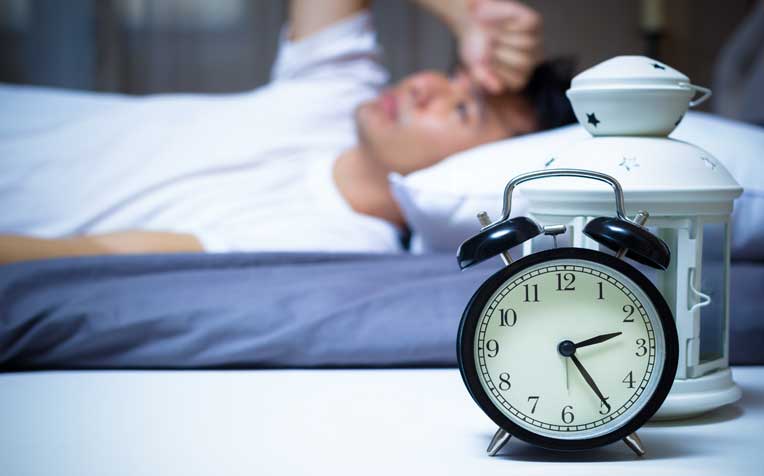
Insomnia (difficulty sleeping) is closely related to medical conditions such as neurological diseases.
5 Tips to prevent insomnia
Keep to a fixed bedtime
Your body will naturally get accustomed to falling asleep and waking up at certain times. So keep these times constant (even on weekends!). Once your body adjusts to a regular rhythm, you will sleep better.
Establish a pre-bedtime ritual
As it gets closer to bedtime, give your body some cues to wind down. You can listen to soothing music, drink a cup of chamomile tea, take a warm bath or read a few chapters of a book.
Keep the bed strictly for sleeping
Refrain from using your bed for brain-stimulating activities like work or even watching television.
Don’t exercise up to four hours before bedtime
Doing so will energise you and keep you awake. So while a regular workout is good for health, it is only advisable to do it in the daytime so it will not interfere with your sleep.
Get out of bed if you can’t sleep for 20 minutes
Instead of tossing and turning in bed, leave the bedroom and engage in some light, relaxing activities until you feel sleepy.
If the insomnia persists, you may have to try other treatments. This includes short-term use of medications, such as sleeping pills. At times, sedating anti-depressants may have to be prescribed.
Chronic insomnia and its health implications
Still, people who regularly sleep too little can suffer from long-lasting health consequences.
Beyond daytime drowsiness – and nodding off at the wheel – prolonged sleep deprivation can in fact lead to serious health implications.
“In fact, insomnia is closely associated with some medical conditions,” says Specialists from the Department of Psychiatry at Singapore General Hospital (SGH), a member of the SingHealth Group.
These conditions include:
Heart disease
Cancer
Neurological disease
Breathing problems
Urinary problems
Chronic pain
Gastrointestinal problems
Poorly controlled high blood pressure
Poorly controlled diabetes
The Department of Psychiatry at SGH provides a comprehensive, integrated, multi-disciplinary service in the assessment and management of patients with psychological and psychiatric disorders, including sleep disorders. Consultation is strictly by appointment only. Referrals are accepted from polyclinics, hospitals, general practitioners, voluntary welfare organisations, schools and colleges and institutions of higher learning. Patients in need of assistance can make a self-referral by calling our Central Appointment at 6321 4377.
Ref: L20
Check out other sleep-related articles:
9 Tips for a Good Night's Sleep
Contributed by
















 Get it on Google Play
Get it on Google Play